
SHENYANG, June 5 (Xinhua) -- At the age of 88, Li Lishui still remembers every detail of his heroic assistance to an Allied prisoner of war (POW) held almost seven decades ago at a Japanese internment camp in northeast China's Liaoning Province.
The wartime 1940s saw twenty-something Li working at a Japanese mechanical factory in a part of China occupied by Japan at the time. One day, he risked his life to share several cucumbers he stole from a dining hall cart with starving detainee Neil Gagliano, who was forced into labor at the factory.
After a six-year revamp, the former POW camp in which Gagliano suffered has just opened to the public. The atmosphere at the former site of the Mukden Internment Camp, located in Dadong District in the provincial capital of Shenyang, will be particularly evocative on Thursday, the 69th anniversary of the Normandy landings that falls on Thursday.
While touring the camp in the run-up to the anniversary, Li told Xinhua, "[Gagliano] gave a longing look at the cucumber. So I threw two to him without hesitation, right under the watch of the Japanese guards."
"I didn't know his name then, I just saw his code number, 266," Li said, adding that Chinese workers at the factory were barred from communicating with the Allied prisoners.
The Chinese government spent more than five million yuan (815,500 U.S. dollars) restoring the original look of the camp, as well as installing a museum and a memorial wall inscribed with the names of over 200 Allies who died there due to severe cold and diseases including malaria and dysentery.
One of the most strongly protected Japanese camps in Asia, the 50,000-square-meter site encompasses a two-story red-brick building, several bungalows, a hospital and a water tower, according to Jing Xiaoguang, an academic specializing in the history of the Japanese invasion of northeast China.
In the cavernous barracks with dim light, large wooden beds are kept intact. Eight captives used to huddle on one bed in wartime.
During the days of captivity, three prisoners created more than 100 pencil-drawn caricatures depicting their suffering in the camp. Replicas of the paintings are exhibited in the newly built museum.
According to data from the National Archives and Records Administration, Japan had detained more than 2,019 Allied troops from the United States, Great Britain, Canada, the Netherlands, Australia and France at the Mukden Internment Camp by January 1945.
Big-name detainees included British General Arthur Percival and U.S. General Jonathan Wainwright. The latter, a partner of General Douglas MacArthur in the Philippines during the war, was caught by the Japanese military in 1942.
Allied troops captured in the early days of the Pacific War, experienced life-threatening long marches and brutal beatings by Japanese wardens, Jing said.
In addition, the prisoners suffered from extreme hunger and malnutrition, according to Li. "I saw some even pick up peanuts and cigarette butts we accidentally dropped on the ground," he said.
His accounts are reinforced by a painting by prisoner Malcolm Fortier. It shows one of his emaciated fellows digging for wild vegetables and another plucking seeds of sunflowers, with a caption reading, "We are searching for anything edible."
Li was not alone in lending a hand to the foreign prisoners.
Chinese worker Gao Dechun helped three American prisoners escape by providing a map of the camp. Gao was later captured and jailed for 10 years.
Another worker, Ge Qingyu, along with American prisoner Roland Nenneth Towery, stole axletrees at the factory and exchanged them for food.
In 2005, the U.S. government awarded the three Chinese the Certificate of Appreciation for their humanitarian aid to the POWs at the camp. Li was the only honoree alive to accept the award in person.
Neil Gagliano managed to send a thank-you letter and his photo to his benefactor in 2003. "I'm No. 266......It has been such a long time, but it feels like it just happened yesterday," he wrote.
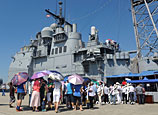
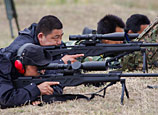
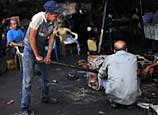


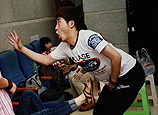
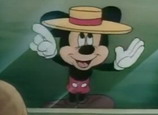
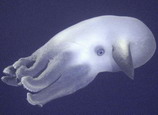

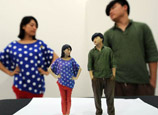






 5,000th baby born in
5,000th baby born in
water in Shanghai


![]()
